I love to read. I find it helpful to summarize my thoughts on each book and I offer those thoughts in the hope that you will be encouraged to either read or pass over the given title.
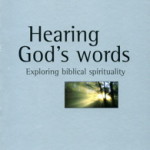 Hearing God’s Words by Peter Adam. I had high expectations for Adam’s entry in the fabulous New Testament Studies in Biblical Theology series. A book that seeks to ground our understanding and practice of spirituality in the Bible itself? Yes please. However, when I closed the book after reading I found myself disappointed. Adam wanders about for the bulk of the book, with not much discernible trajectory or unity in argument. I must mention that he does have some very helpful sections on how a spirituality of the Word should overflow into ordinary Christian life. If you are already convinced about the centrality of Scripture for piety, then you probably only need to read the first and last chapters—for, in my mind at least, that’s where Adam’s best instruction lies.
Hearing God’s Words by Peter Adam. I had high expectations for Adam’s entry in the fabulous New Testament Studies in Biblical Theology series. A book that seeks to ground our understanding and practice of spirituality in the Bible itself? Yes please. However, when I closed the book after reading I found myself disappointed. Adam wanders about for the bulk of the book, with not much discernible trajectory or unity in argument. I must mention that he does have some very helpful sections on how a spirituality of the Word should overflow into ordinary Christian life. If you are already convinced about the centrality of Scripture for piety, then you probably only need to read the first and last chapters—for, in my mind at least, that’s where Adam’s best instruction lies.
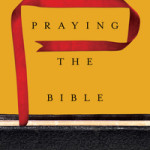 Praying the Bible by Don Whitney. Short, concise, and practical, I could see Whitney’s latest book offering wisdom many church members—and church leaders—are looking for. In Praying the Bible Whitney says, “If . . . mind-wandering boredom describes your experience in prayer, I would argue that if you are indwelled by the Holy Spirit—if you are born again—then the problem is not you; it is your method.” I think he’s right, especially when you understand the method he has in mind. The is method is praying through Scripture, particularly the Psalms. He’s spot on to say that such a method of prayer gives structure, purpose, and longevity. Whitney’s book is brief, just under 100 pages, so when it comes out you’ll want to buy some copies for your church. This one could transform your people’s prayer life.
Praying the Bible by Don Whitney. Short, concise, and practical, I could see Whitney’s latest book offering wisdom many church members—and church leaders—are looking for. In Praying the Bible Whitney says, “If . . . mind-wandering boredom describes your experience in prayer, I would argue that if you are indwelled by the Holy Spirit—if you are born again—then the problem is not you; it is your method.” I think he’s right, especially when you understand the method he has in mind. The is method is praying through Scripture, particularly the Psalms. He’s spot on to say that such a method of prayer gives structure, purpose, and longevity. Whitney’s book is brief, just under 100 pages, so when it comes out you’ll want to buy some copies for your church. This one could transform your people’s prayer life.
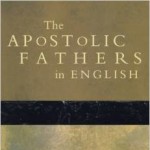 The Apostolic Fathers edited by Michael Holmes. Here is a treasure trove of primary source material from the church fathers. The first edition came out way back in 1891 and Baker Publishing is to be commended for keeping this volume, under a new editor, in print. The Apostolic Fathers includes many texts integral to our understanding of the period from men like Clement, Ignatius, Polycarp, as well as The Didache. If you aren’t interested in patristic studies, which you probably aren’t, don’t shy away from this gem. You’ll likely be surprised how instructive and encouraging the fathers are—I know I was.
The Apostolic Fathers edited by Michael Holmes. Here is a treasure trove of primary source material from the church fathers. The first edition came out way back in 1891 and Baker Publishing is to be commended for keeping this volume, under a new editor, in print. The Apostolic Fathers includes many texts integral to our understanding of the period from men like Clement, Ignatius, Polycarp, as well as The Didache. If you aren’t interested in patristic studies, which you probably aren’t, don’t shy away from this gem. You’ll likely be surprised how instructive and encouraging the fathers are—I know I was.
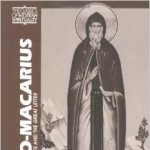 Pseudo-Macarius: The Fifty Spiritual Homilies and the Great Letter. Macarius was a Syrian monk in the fourth century who has generated no small amount of scholarly interest of the years due to his interpretation of Scripture and articulation of the Christian life. Even John Wesley was smitten with his work! The book’s homilies are quite catechetical in nature and full of metaphors. Some his interpretations won’t find widespread agreement today, but I appreciate his emphasis on the Christian life as one of fighting, struggle, and perseverance. His focus on the pursuit of purity and devotion to prayer is also commendable.
Pseudo-Macarius: The Fifty Spiritual Homilies and the Great Letter. Macarius was a Syrian monk in the fourth century who has generated no small amount of scholarly interest of the years due to his interpretation of Scripture and articulation of the Christian life. Even John Wesley was smitten with his work! The book’s homilies are quite catechetical in nature and full of metaphors. Some his interpretations won’t find widespread agreement today, but I appreciate his emphasis on the Christian life as one of fighting, struggle, and perseverance. His focus on the pursuit of purity and devotion to prayer is also commendable.
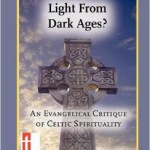 Light from Dark Ages? An Evangelical Critique of Celtic Spirituality by Marian Raikes. Only recently have I been made aware that Celtic spirituality is making a comeback in some arenas of evangelicalism. As it is appropriated today, Celtic spirituality seems to have much to offer for contemporary culture: the Celts are said to be about tolerance, ecumenism, environmentalism, and holistic ministry. Raikes effectively demolishes this modern adaptation, proving it to be unfaithful to the real tradition. Celtic spirituality does indeed have much to offer to us today, just for different and more ordinary reasons. The strengths of Celtic spirituality lie in earnest discipleship, love of the scriptures, commitment to prayer, costly evangelism and the pursuit of holiness. Will such interests set our modern culture on spiritual fire? I hope so.
Light from Dark Ages? An Evangelical Critique of Celtic Spirituality by Marian Raikes. Only recently have I been made aware that Celtic spirituality is making a comeback in some arenas of evangelicalism. As it is appropriated today, Celtic spirituality seems to have much to offer for contemporary culture: the Celts are said to be about tolerance, ecumenism, environmentalism, and holistic ministry. Raikes effectively demolishes this modern adaptation, proving it to be unfaithful to the real tradition. Celtic spirituality does indeed have much to offer to us today, just for different and more ordinary reasons. The strengths of Celtic spirituality lie in earnest discipleship, love of the scriptures, commitment to prayer, costly evangelism and the pursuit of holiness. Will such interests set our modern culture on spiritual fire? I hope so.
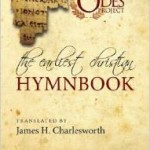 The Earliest Christian Hymnbook: Odes of Solomon. For those of you who love history and reading old hymns this book is for you. These odes, or hymns, were probably written around 100 A.D. and thus contain some wonderful insights into the spirituality of the church during the closing of the apostolic age. A couple of the odes are a bit strange, but, on the whole, the project bursts forth with joy. If you happen to know someone gifted in crafting congregational melody, give him or her this book. Maybe they’ll be inspired to put the odes to music and today’s church can sing some of the earliest Christian songs.
The Earliest Christian Hymnbook: Odes of Solomon. For those of you who love history and reading old hymns this book is for you. These odes, or hymns, were probably written around 100 A.D. and thus contain some wonderful insights into the spirituality of the church during the closing of the apostolic age. A couple of the odes are a bit strange, but, on the whole, the project bursts forth with joy. If you happen to know someone gifted in crafting congregational melody, give him or her this book. Maybe they’ll be inspired to put the odes to music and today’s church can sing some of the earliest Christian songs.
Click here to find other entries in the Recent Reads series.
